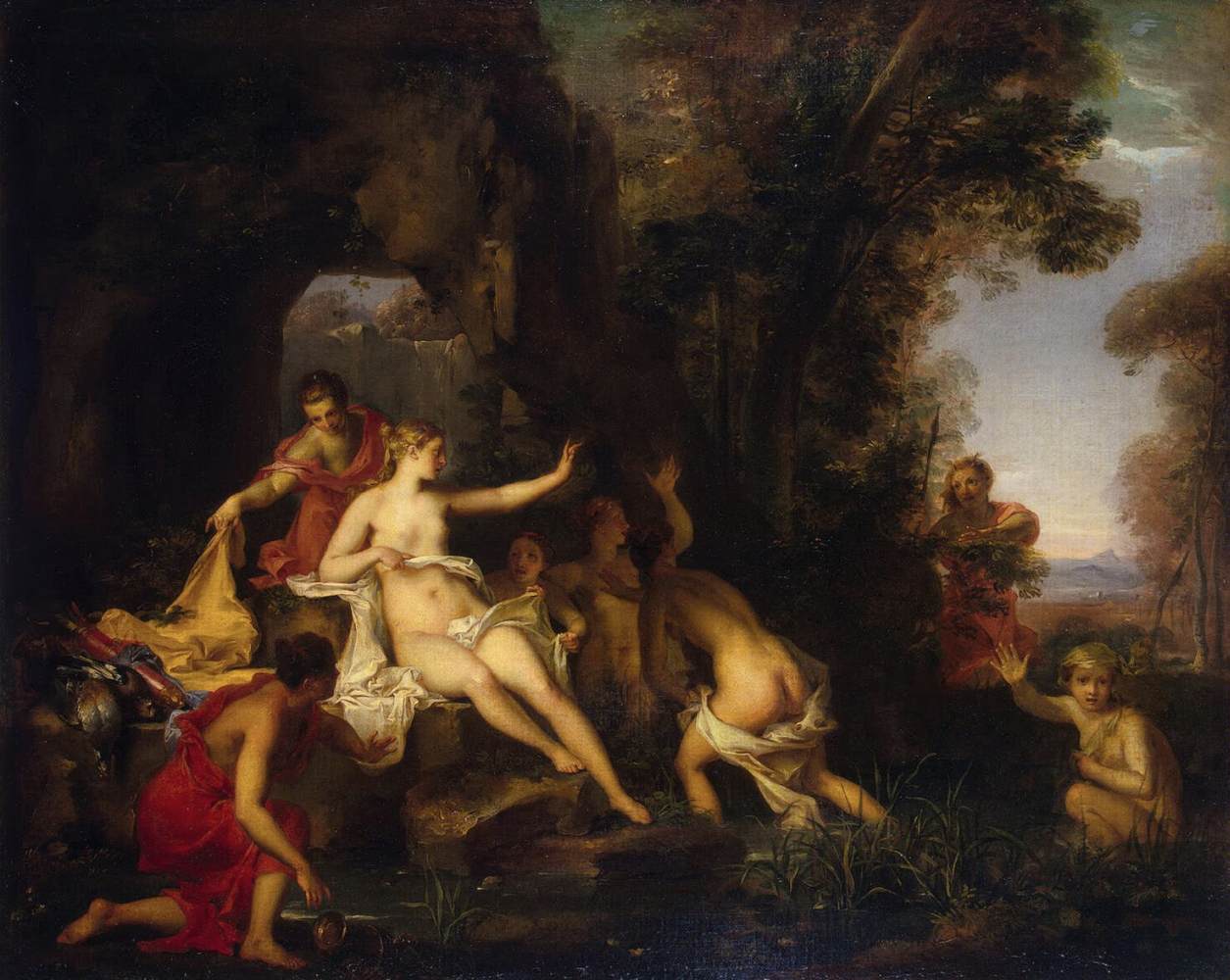Description
The painting Diana and Actaeon by Louis Galloche is an impressive work depicting a mythological scene from ancient Greece. The work is a perfect example of the French Baroque style, with its attention to detail and dramatic use of light and shadow.
The composition of the painting is very interesting, as it presents two main figures in a wooded landscape. Diana, the goddess of the hunt, is at the center of the scene, holding her bow and arrows, while Actaeon, a deadly hunter, stands by her side, gazing at her in awe.
Color is also a prominent aspect of the painting, with dark, rich tones creating a sense of depth and mystery. The use of light and shadow is particularly effective, as the light falling on Diana highlights her beauty and divine power.
The story behind the painting is fascinating as it is based on an ancient legend in which Actaeon is punished for seeing Diana naked while bathing. In the painting, Galloche captures the tension and emotion of this moment, with Diana staring at Actaeon as her anger grows.
A little known aspect of the painting is that it was commissioned by King Louis XIV of France for his mistress, Madame de Montespan. The work was considered one of the most important of the 17th century and was exhibited in the Palace of Versailles for many years.
In short, Louis Galloche's painting Diana and Actaeon is a masterpiece of French Baroque that combines aesthetic beauty with mythological narrative. His composition, color, and use of light and shadow are impressive, and his story adds an extra level of interest to this iconic work.

